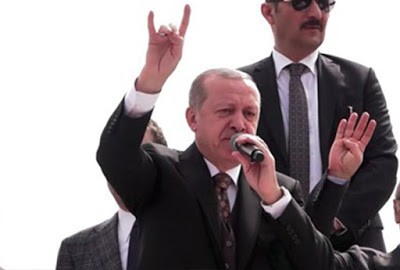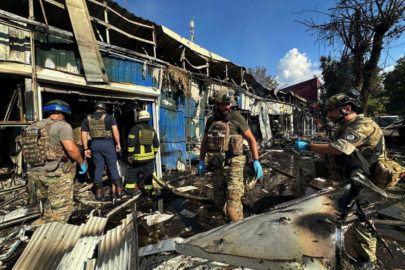A potential security threat has emerged for NATO and Europe at large: the construction of Turkey’s first nuclear plant. Experts say the project by Russia and Turkey could allow Moscow to establish a commercial port in Turkey’s Mediterranean province of Mersin.
The plant, which will be built and financed by a subsidiary of Russia’s nuclear energy firm Rosatom, is set to have its first reactor operational by May 2023 under the Turkish-Russian agreement signed in July 2022 between Rosatom subsidiary Akkuyu Nukleer and the Turkish firm TSM Enerji, which is owned by three Russia-based companies.
Some 200 kilometers (120 miles) from Cyprus and NATO’s Kurecik early-warning radar station and also near the Syrian border, the Akkuyu Nuclear Power Plant is in a highly strategic location that may prove to be an important regional asset for the Kremlin. The Russian navy already operates a large naval base in Tartus, Syria, some 250 kilometers (155 miles) from Mersin.
Billing itself as the “biggest project in the history of Russian-Turkish relations,” the nuclear power plant is planned to house four generating reactor units, which is expected to produce 10% of Turkey’s electricity needs by 2026 and create many job opportunities. While an original agreement for the construction was signed in 2010 between Akkuyu Nukleer and the Turkish firm IC Ictas, it was later on terminated and a new one was signed over the summer for TSM to undertake the remaining building work. The estimated $20 billion plant ultimately seems to favor Russia, as it was funded almost entirely by Rosatom and provides its entities with a majority stake. While a 2018 deal was reportedly concluded in which Moscow would retain 51% and sell 49% stakes to Turkish firms, later reports claimed this arrangement collapsed and that Russian entities now possess 99.2% of the shares. The site is also Rosatom’s first application of a build-own-operate model in which Russia is in charge of its design, construction, maintenance, operation, training of Turkish personnel and eventual dismantling.
“Athens. The City is the Museum” project – Immersive Google Audio tour of the City (video)
Several elements linked to the Akkuyu plant have raised national and international concerns. These have partly stemmed from some of the reported clauses in the initial agreement that could prove to be problematic in the current international climate. They include allowing for the development and construction of all necessary supportive infrastructure without any limitations, permitting technology transfers and the exchange of information between parties in the field of nuclear installations and activities and provision of nuclear and non-nuclear systems, equipment and material for the plant’s construction.
Read more: Al Monitor





































